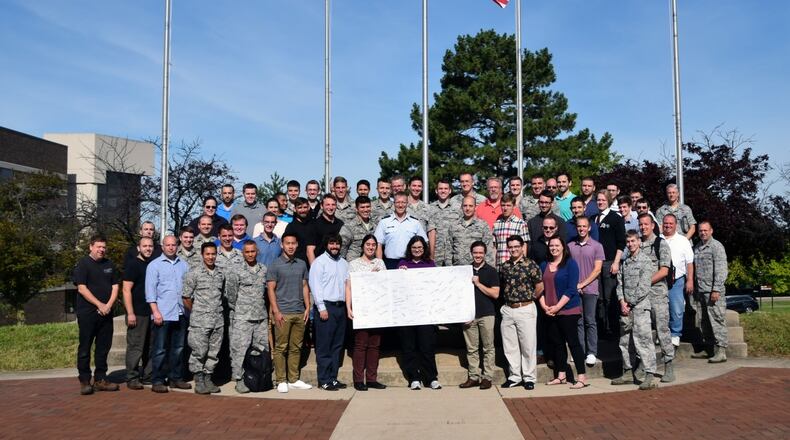“The SkyPad payload gave students an invaluable exposure to the pressures and realities of space systems engineering,” said Maj. Robert Bettinger, deputy director, AFIT’s Center for Space Research and Assurance.
“In less than six months, the team of faculty, staff and students delivered a space-ready mission ahead of schedule, which stands as a testament to the power of the expertise of AFIT’s space vehicle design program,” said Bettinger.
The payload employs an experimental suite of components for demonstration in the space environment. This collaboration also provides a platform for graduate research and hands-on education in mission analysis and design, payload hardware and software development, integration and testing and on-orbit experimentation.
AFIT, located at Wright-Patterson Air Force Base, is the Air Force’s graduate school of engineering and management as well as its institution for technical professional continuing education. AFIT is committed to providing defense-focused graduate and professional continuing education and research to sustain the technological supremacy of America’s air, space and cyber forces.
For additional information about graduate or post-doctoral degrees in astronautical engineering or space systems, visit the CSRA website at https://www.afit.edu/CSRA/, call 937-255-6565, ext. 4753, or email Jaclyn.knapp.ctr@afit.edu.
About the Author
